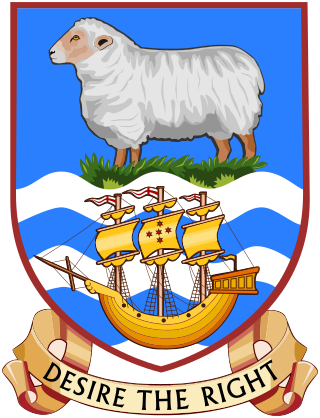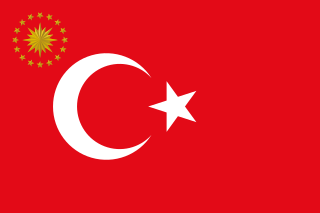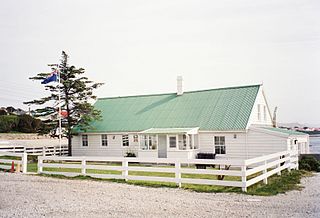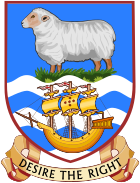
The politics of the Falkland Islands takes place in a framework of a constitutional monarchy and parliamentary representative democratic dependency as set out by the constitution, whereby the Governor exercises the duties of head of state in the absence of the monarch, and the Chief Executive is the head of the Civil Service, with an elected Legislative Assembly to propose new laws, national policy, approve finance and hold the executive to account.
A by-election, also known as a special election in the United States and the Philippines, or a bypoll in India, is an election used to fill an office that has become vacant between general elections.

The president of Turkey, officially the president of the Republic of Türkiye, is the head of state and head of government of Turkey. The president directs the executive branch of the national government and is the commander-in-chief of the Turkish military. The president also heads the National Security Council.

The Victorian Legislative Council is the upper house of the bicameral Parliament of Victoria, Australia, the lower house being the Legislative Assembly. Both houses sit at Parliament House in Spring Street, Melbourne. The Legislative Council serves as a house of review, in a similar fashion to its federal counterpart, the Australian Senate. Although it is possible for legislation to be first introduced in the Council, most bills receive their first hearing in the Legislative Assembly.

The Legislative Council, or upper house, is one of the two chambers of the Parliament of South Australia. Its central purpose is to act as a house of review for legislation passed through the lower house, the House of Assembly. It sits in Parliament House in the state capital, Adelaide.
In the Parliament of Australia, a casual vacancy arises when a member of either the Senate or the House of Representatives:
The dissolution of a legislative assembly is the simultaneous termination of service of all of its members, in anticipation that a successive legislative assembly will reconvene later with possibly different members. In a democracy, the new assembly is chosen by a general election. Dissolution is distinct on the one hand from abolition of the assembly, and on the other hand from its adjournment or prorogation, or the ending of a legislative session, any of which begins a period of inactivity after which it is anticipated that the same members will reassemble. For example, the "second session of the fifth parliament" could be followed by the "third session of the fifth parliament" after a prorogation, but would be followed by the "first session of the sixth parliament" after a dissolution.

The Parliament of South Australia is the bicameral legislature of the Australian state of South Australia. It consists of the 47-seat House of Assembly and the 22-seat Legislative Council. General elections are held every 4 years, with all of the lower house and half of the upper house filled at each election. It follows a Westminster system of parliamentary government with the executive branch required to both sit in parliament and hold the confidence of the House of Assembly. The parliament is based at Parliament House on North Terrace in the state capital of Adelaide.

The Parliament of the Cook Islands is the legislature of the Cook Islands. Originally established under New Zealand administration, it became the national legislature upon independence in 1965.

The Legislative Assembly of the Falkland Islands is the unicameral legislature of the British Overseas Territory of the Falkland Islands. The Legislative Assembly replaced the Legislative Council when the new Constitution of the Falklands came into force in 2009 and laid out the composition, powers and procedures of the islands' legislature.

The chief executive of the Falklands Islands is head of the public service responsible for the efficient and effective management of the Falkland Islands Government. The appointment, role and powers of the chief executive are set out in the Constitution of the Falkland Islands.

The Legislative Council of the Falkland Islands was the unicameral legislature of the Falkland Islands from 13 November 1845 until 1 January 2009. The new constitution came into force in 2009 and replaced the Legislative Council with the Legislative Assembly of the Falkland Islands.

The Executive Council of the Falkland Islands is the policy making body of the Government of the Falkland Islands, exercising executive power by advising the Governor. It has an equivalent role to that of the Privy Council in the United Kingdom. The first Executive Council for the Falklands was inaugurated on 2 April 1845 by Governor Richard Moody.

The Falkland Islands Constitution is a predominantly codified constitution documented primarily within the Falkland Islands Constitution Order 2008, a statutory instrument of the United Kingdom. The constitution, in its present form, was made on 5 November 2008 by Queen Elizabeth II in a meeting of the Privy Council at Buckingham Palace. It was laid before Parliament on 12 November 2008 and came into force on 1 January 2009, replacing the 1985 constitution.

The Falkland Islands general election of 2009 was held on Thursday 5 November 2009 to elect members to the Legislative Assembly. It was the first general election in the Falkland Islands since the new constitution came into force on 1 January 2009, which replaced the old Legislative Council with the Legislative Assembly. Chief Executive Tim Thorogood acted as Returning Officer.

The Falkland Islands general election of 1977 was held on Thursday 6 October 1977 to elect members to the Legislative Council. Six Councillors were elected through universal suffrage, one from each constituency.

The Falkland Islands general election of 1997 was held on Thursday 9 October 1997 to elect members to the Legislative Council. Eight Councillors were elected through universal suffrage using block voting, five from the Stanley constituency and three from the Camp constituency.

The Falkland Islands general election of 2021 was held on Thursday 4 November 2021 to elect all eight members of the Legislative Assembly through universal suffrage using block voting, with the Chief Executive of the Falkland Islands acting as returning officer. It was the fourth election since the new Constitution came into force replacing the Legislative Council with the Legislative Assembly.

A referendum on reforming the electoral system was held in the Falkland Islands on 24 September 2020, after being postponed from 26 March 2020 following the Coronavirus pandemic. Voters were asked if they wanted to replace the two existing electoral constituencies with a single constituency for the whole of the Islands. Although a majority of those who voted supported the change, the required two-thirds majority in both of the islands' constituencies was not achieved.







